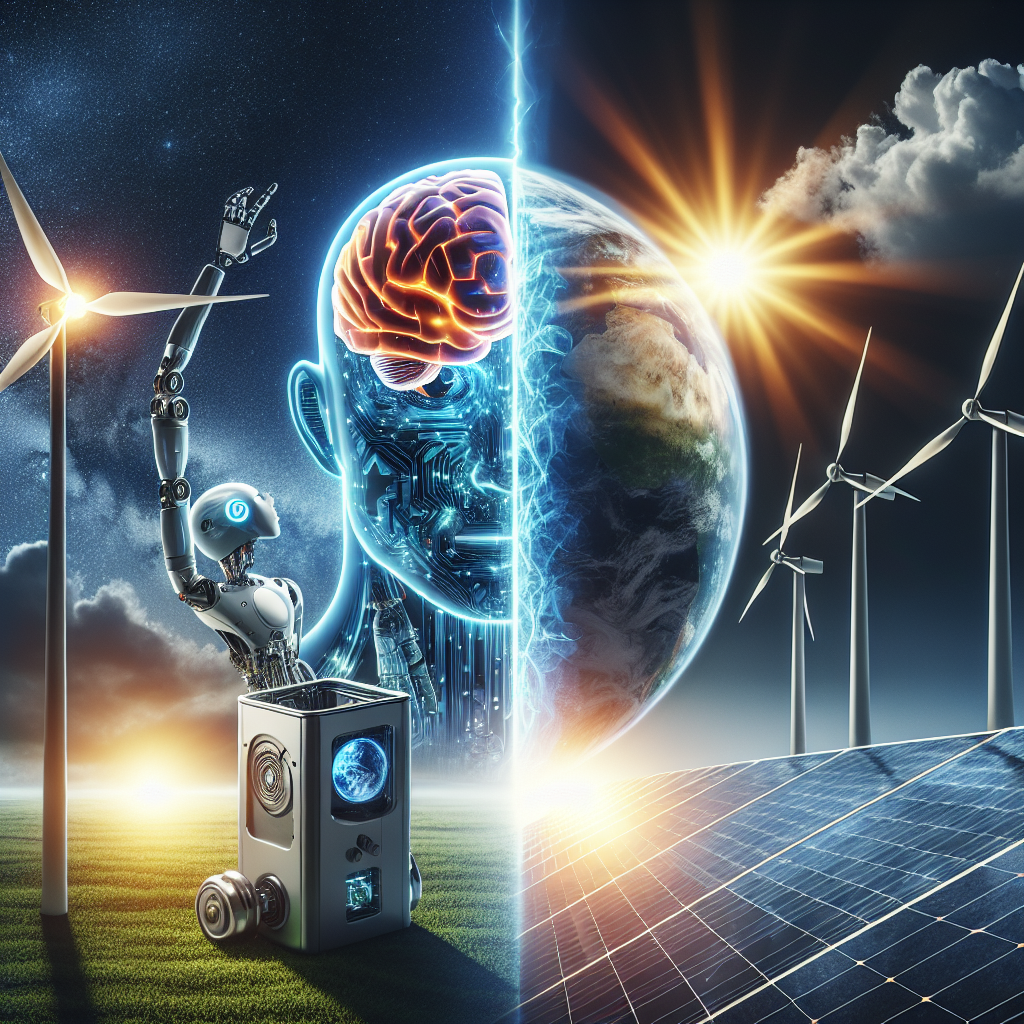AI and Renewable Energy: A Winning Combination for the Planet
In recent years, there has been a growing concern about the impact of climate change on our planet. The burning of fossil fuels for energy production has been identified as one of the major contributors to global warming and the resulting environmental degradation. In response to this crisis, there has been a push towards the adoption of renewable energy sources such as solar, wind, and hydroelectric power. These sources of energy are not only more sustainable and eco-friendly, but they also have the potential to reduce our dependence on fossil fuels and lower carbon emissions.
However, the transition to renewable energy sources is not without its challenges. One of the key issues facing the renewable energy sector is the variability of these energy sources. Unlike fossil fuels, which can be easily stored and used when needed, renewable energy sources such as solar and wind power are dependent on environmental conditions and can be intermittent. This variability can lead to fluctuations in energy production, making it difficult to maintain a stable and reliable energy supply.
This is where artificial intelligence (AI) comes in. AI technologies have the potential to revolutionize the renewable energy sector by optimizing energy production, improving efficiency, and managing the variability of renewable energy sources. By leveraging the power of AI, renewable energy systems can be made more reliable, cost-effective, and environmentally sustainable.
AI in Renewable Energy
AI technologies such as machine learning, neural networks, and predictive analytics can be used to analyze vast amounts of data generated by renewable energy systems. By analyzing this data in real-time, AI algorithms can optimize energy production, forecast energy demand, and make intelligent decisions to ensure a stable energy supply. For example, AI can be used to predict wind patterns and adjust the output of wind turbines accordingly, or to optimize the placement of solar panels to maximize energy production.
AI can also be used to improve the efficiency of renewable energy systems. By analyzing data on energy consumption patterns, AI algorithms can identify opportunities to reduce energy waste and increase energy efficiency. For example, AI can optimize the operation of smart grids to minimize energy losses during transmission, or adjust the output of solar panels to match peak energy demand.
Furthermore, AI can help to manage the variability of renewable energy sources. By analyzing weather patterns and energy production data, AI algorithms can predict fluctuations in energy production and adjust energy storage systems accordingly. For example, AI can optimize the charging and discharging of batteries in a solar energy system to ensure a stable energy supply during periods of low sunlight.
Benefits of AI in Renewable Energy
The integration of AI technologies into renewable energy systems offers a number of benefits, both for the environment and for the economy. Some of the key benefits of AI in renewable energy include:
1. Improved efficiency: AI algorithms can optimize energy production and reduce energy waste, leading to increased efficiency and lower energy costs.
2. Increased reliability: By managing the variability of renewable energy sources, AI can ensure a stable and reliable energy supply, even in adverse weather conditions.
3. Lower carbon emissions: By increasing the efficiency of renewable energy systems, AI can help to reduce carbon emissions and combat climate change.
4. Cost savings: AI technologies can help to reduce operating costs and increase the return on investment for renewable energy projects.
5. Job creation: The integration of AI in the renewable energy sector can create new job opportunities in the fields of data analysis, machine learning, and energy management.
FAQs
Q: How does AI improve the efficiency of renewable energy systems?
A: AI technologies such as machine learning and predictive analytics can analyze data on energy consumption patterns and optimize energy production to reduce waste and increase efficiency.
Q: Can AI help to manage the variability of renewable energy sources?
A: Yes, AI algorithms can analyze weather patterns and energy production data to predict fluctuations in energy production and adjust energy storage systems accordingly.
Q: What are some of the benefits of integrating AI into renewable energy systems?
A: Some of the key benefits of AI in renewable energy include improved efficiency, increased reliability, lower carbon emissions, cost savings, and job creation.
Q: How can AI technologies be implemented in renewable energy systems?
A: AI technologies can be integrated into renewable energy systems through the use of sensors, data analytics platforms, and smart grid technologies.
In conclusion, the integration of AI technologies into renewable energy systems has the potential to revolutionize the way we produce and consume energy. By optimizing energy production, improving efficiency, and managing the variability of renewable energy sources, AI can help to create a more sustainable and eco-friendly energy system for the future. With the right investments and policies in place, AI and renewable energy can be a winning combination for the planet, helping to combat climate change and build a cleaner, greener future for generations to come.

